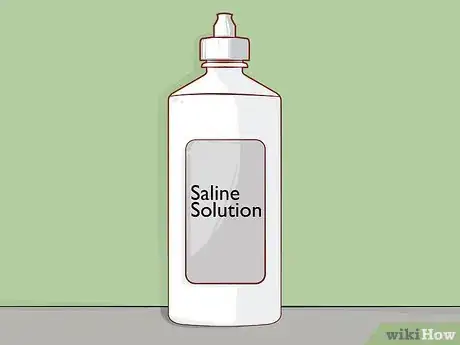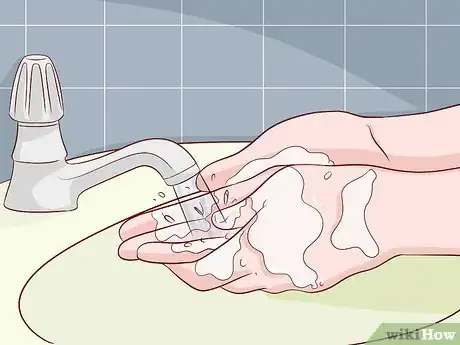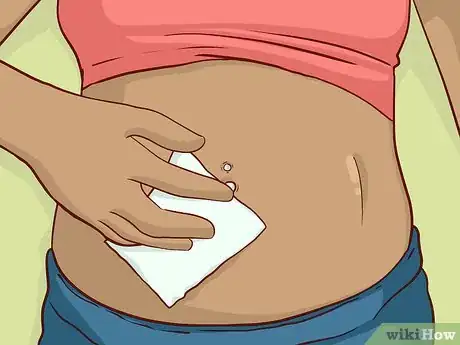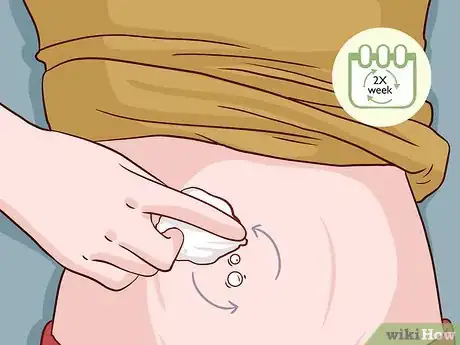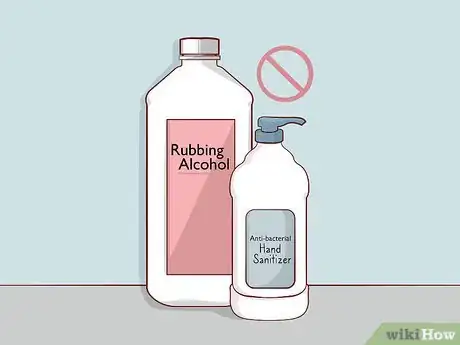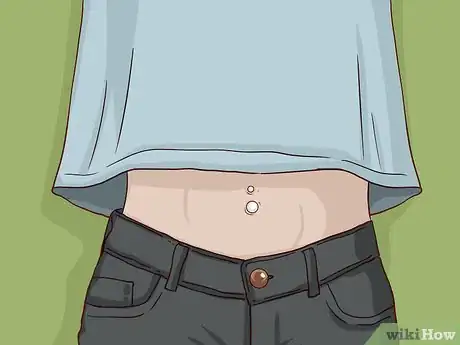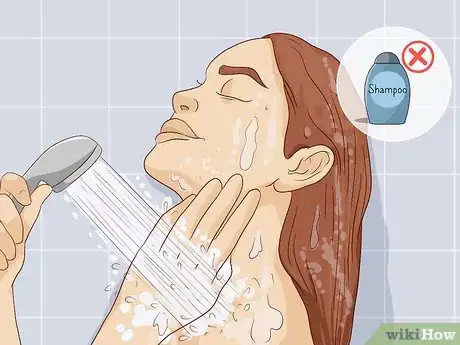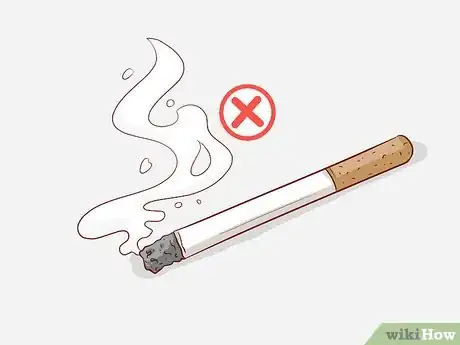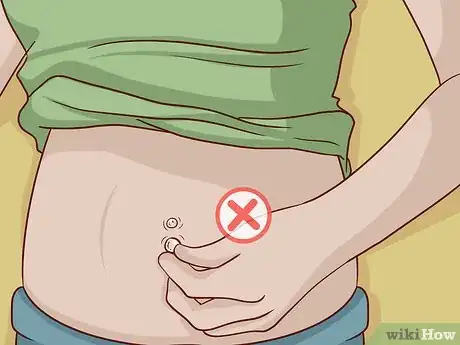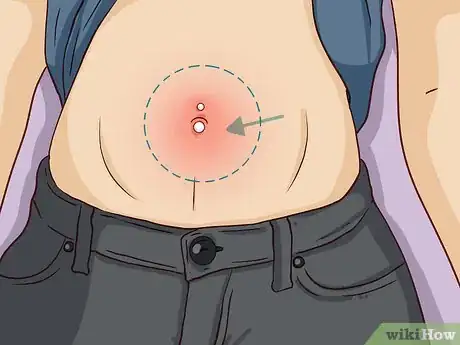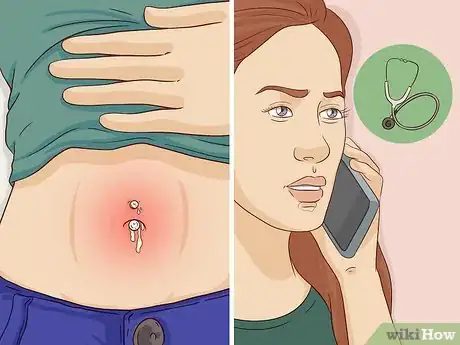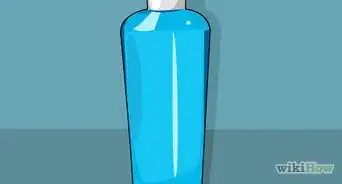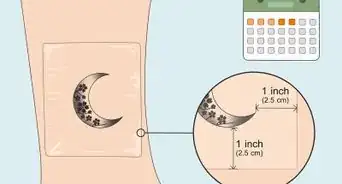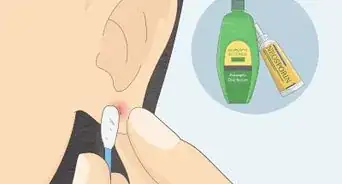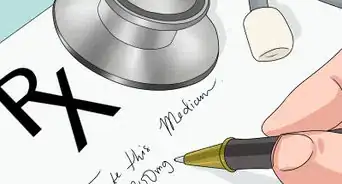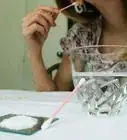This article was medically reviewed by Luba Lee, FNP-BC, MS and by wikiHow staff writer, Jessica Gibson. Luba Lee, FNP-BC is a Board-Certified Family Nurse Practitioner (FNP) and educator in Tennessee with over a decade of clinical experience. Luba has certifications in Pediatric Advanced Life Support (PALS), Emergency Medicine, Advanced Cardiac Life Support (ACLS), Team Building, and Critical Care Nursing. She received her Master of Science in Nursing (MSN) from the University of Tennessee in 2006.
There are 9 references cited in this article, which can be found at the bottom of the page.
wikiHow marks an article as reader-approved once it receives enough positive feedback. In this case, several readers have written to tell us that this article was helpful to them, earning it our reader-approved status.
This article has been viewed 990,371 times.
Body piercings are a wonderful form of self-expression, but your body will treat them like wounds that need to heal. This is why it's important to gently clean the piercing site with saline a few times a day. Go easy on yourself so your body can heal and prevent an infection from growing. You'll soon get into the habit of caring for the piercing and it should heal quickly.
Steps
Keeping the Piercing Clean
-
1Purchase saline solution from your piercer or a pharmacy. Your piercer may sell bottles of saline solution or you can purchase them from most pharmacies, grocery stores, or online. You may see saline solution called "wound wash saline."
- Homemade Saline Solution:
Stir 1/8 teaspoon (0.7 g) of non-iodized salt in 1 cup (240 ml) of warm distilled water until the salt dissolves. - Don't buy a solution that's designed for contact lenses since it may be too harsh for your piercing.
- Homemade Saline Solution:
-
2Wash your hands before cleaning the piercing. Your piercing can become infected if bacteria gets into it, so it's important to thoroughly wash your hands with soapy water before you touch or clean the piercing. Dry your hands well on a clean cloth or paper towel.[1]
- Keep your new piercing out of water that could be dirty, such as lakes, pools, or hot tubs. This can minimize your risk of infection.
Advertisement -
3Hold saline-soaked gauze against the piercing for 5 minutes. Dip clean gauze or paper towels into homemade or store-bought saline solution and gently press it on the piercing for 5 minutes. This should loosen any crusty bits of skin near the piercing and they'll come away when you pat the piercing dry. Don't pick off the crusty bits when the skin is dry or you could irritate the skin.
- Some medical professionals recommend gently turning the jewelry while your skin is wet to help the saline work into the piercing. Never twist the jewelry while your skin is dry or you could slow the healing process.
- If your body piercing can be submerged, lower it into homemade saline solution and soak for about 5 minutes. To submerge your piercing, fill your tub with a few inches of water and stir in salt until it's diluted. You could also use a sitz bath to soak genital piercings.
-
4Pat the piercing dry with a clean paper towel. Once the saline has soaked into the piercing, take a new paper towel and gently press it over the piercing. Keep patting the skin until the piercing is dry and then throw away the paper towel.
- Don't use a cloth towel even if it's clean. Cloth towels can catch on the jewelry and they may have bacteria on them that could get into the piercing site.
-
5Clean your piercing 2 times a day until the piercing has healed. Although you may think that cleaning your piercing even more can help it heal faster, cleaning too often can dry out your skin. Plan on cleaning the piercing just twice a day until the piercing is completely healed. Healing time will depend on what type of body piercing you got.[2]
-
6Avoid using rubbing alcohol or hydrogen peroxide to clean the piercing. You should clean the piercing as gently as possible so don't use products that will dry out or irritate your skin. Avoid cleaning with rubbing alcohol, hydrogen peroxide, anti-bacterial hand sanitizers, and harsh soaps.[3]
- Some of these products contain alcohol which will dry out your skin. This can make dead skin cells build up to form crusty material near the piercing site.
Helping the Piercing Heal
-
1Wear loose clothing that doesn't press against the piercing. If your piercing is covered by clothing, don't wear tight clothes that will rub up against the piercing. Friction will irritate the site and extend your recovery time. Instead, wear soft, loose clothing that won't snag on the jewelry.[4]
- Loose clothing will also allow air to circulate which can prevent infection and help the site heal.
-
2Get plenty of rest to help your body heal. As with any wound, the healing process will happen faster if your body isn't working to fight other problems or infections. If you're a teenager, try to get at least 8 to 10 hours of sleep. If you're an adult, you should sleep at least 7 hours a night.[5]
- Find ways to manage stress, so your body can focus on healing. You might try yoga, meditation, listening to music, or going for a walk.
- If your piercing is somewhere on your head, put clean, soft pillowcases on your pillows so the jewelry won't become irritated as you sleep.
-
3Take showers instead of baths until the piercing has healed. You should avoid getting shampoo, soap, or germs into the piercing. Since it's harder to prevent this from happening in the bath, take showers and ensure that soap or shampoo doesn't get into the piercing.
- If you still want to take a bath, clean the bathtub thoroughly before you get in. Prevent soap or shampoo from getting into the piercing and rinse your skin once you get out.
-
4Maintain good nutrition and hydration to keep your immune system healthy. Have a good diet that has healthy sources of vitamin C and zinc to help your piercing heal faster and prevent infection. Include foods like whole grains, strawberries, spinach, and dairy to maintain a balanced diet. On top of eating healthy, drink 10–15 cups (2.4–3.5 L) of fluids each day so your body stays hydrated.[6]
- Avoid sweetened beverages since they won’t help promote a healthy immune system.
-
5Avoid smoking and drinking to speed up your healing time. Research shows that drinking alcohol and smoking can slow your body's healing abilities. To help your piercing heal quickly, try to quit smoking and give up drinking.[7]
- Remember that your body will treat the piercing like a wound and will begin to heal itself. Go easy on yourself for a few days to give your body a good chance to recover.
Preventing and Handling an Infection
-
1Avoid touching or playing with the piercing. Try to leave the piercing alone so your skin can heal. If you unnecessarily touch, twist, or play with the piercing, you may introduce bacteria or damage the skin.[8]
- You should also avoid applying makeup or beauty products, such as lotions or sprays. These can irritate the piercing site as it's trying to heal.
- If you do play with the jewelry, it may take longer for your piercing to heal.
-
2Watch for swelling and irritation that could signal an infection. It's normal for a new piercing to be tender or bleed for a few days, but if the piercing site doesn't seem to get better or gets worse, you may have an infection. Look for these signs of infection if you've had the piercing for at least 3 days:[9]
- Continued bleeding or tenderness
- Swelling
- Pain
- Yellow or green discharge
- Fever
-
3Get immediate medical attention if you think your piercing is infected. Don't wait to get help if you suspect the piercing site is infected. Leave your jewelry in and contact your doctor. They may need to prescribe antibiotics to treat the infection. By leaving the jewelry in, the infection can start to drain within a few days.[10]
- If you remove the jewelry, the piercing site may close up, which can make it harder to treat the infection.
Expert Q&A
Did you know you can get expert answers for this article?
Unlock expert answers by supporting wikiHow
-
Questionis it okay to use rock salt instead of sea salt in making saline solution for ear piercing?
 Luba Lee, FNP-BC, MSLuba Lee, FNP-BC is a Board-Certified Family Nurse Practitioner (FNP) and educator in Tennessee with over a decade of clinical experience. Luba has certifications in Pediatric Advanced Life Support (PALS), Emergency Medicine, Advanced Cardiac Life Support (ACLS), Team Building, and Critical Care Nursing. She received her Master of Science in Nursing (MSN) from the University of Tennessee in 2006.
Luba Lee, FNP-BC, MSLuba Lee, FNP-BC is a Board-Certified Family Nurse Practitioner (FNP) and educator in Tennessee with over a decade of clinical experience. Luba has certifications in Pediatric Advanced Life Support (PALS), Emergency Medicine, Advanced Cardiac Life Support (ACLS), Team Building, and Critical Care Nursing. She received her Master of Science in Nursing (MSN) from the University of Tennessee in 2006.
Board-Certified Family Nurse Practitioner
Warnings
- Leave your jewelry in if you think you have an infection and get immediate medical attention. If you remove the jewelry, it will be difficult for the infection to heal and drain.⧼thumbs_response⧽
References
- ↑ https://www.nhs.uk/common-health-questions/lifestyle/can-i-go-swimming-after-a-piercing/
- ↑ https://www.healthlinkbc.ca/health-topics/not250521
- ↑ https://uhs.berkeley.edu/health-topics/body-piercings
- ↑ http://www.abmai.org/aftercare.html
- ↑ https://www.cdc.gov/sleep/about_sleep/how_much_sleep.html
- ↑ eatright.org/health/wellness/preventing-illness/nutrition-tips-to-promote-wound-healing
- ↑ https://www.ncbi.nlm.nih.gov/pmc/articles/PMC3052954/
- ↑ https://www.mayoclinic.org/healthy-lifestyle/adult-health/in-depth/piercings/art-20047317
- ↑ https://www.nhs.uk/conditions/body-piercing/
About This Article
In order to help your body piercing heal, avoid touching the piercing for 24 hours after getting it. Though some bleeding, bruising, and swelling should be expected, call your piercer if the symptoms get worse or last for a long time. For a few weeks after getting it, clean your piercing twice a day using gauze soaked in a sea salt solution. As the piercing heals, clean off crusted areas with a Q-tip dipped in the sea salt solution. For tips on preventing skin infection around your body piercing, read on!
